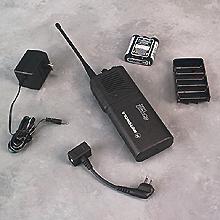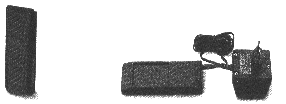
 | Wireless CommunicationChapter: RF design and architectures |
 The power consumption of portable terminals
is one of the main issues in wireless communications.
Existing battery and other energy storage technologies appear a critical factor in the rapid introduction of some new services.
The power consumption of portable terminals
is one of the main issues in wireless communications.
Existing battery and other energy storage technologies appear a critical factor in the rapid introduction of some new services.
The power-consumption in a handheld transceivers highly depends on the distance to the base station. In cellular phones, for example, the transmit power of the power amplifier is routinely varied adaptively depending on path loss to the base station, both to save power and to reduce interference to other users.
According to Profs. Paul Gray and Robert Miller, there are excellent opportunities for continued progress in high-integration, low-cost RF transceivers to reduce power consumption. A key requirement for progress is close collaboration between transceiver and system designers and architects, RF and digital circuit designers, and device and package modeling engineers.

| Talk Time: | Standard Battery | High Capacity Battery | |
| 1 watt | 50 min | 1 hr 40 min | |
| 0.6 watt | 1 hr | 2 hrs | |
| Stand by | 24 hrs | 28 hrs | |
| Talk-time per weight | 0.3 min/gr | 0.48 min/gr. |

| The Infopad research program addresses low-power design for wireless computing. |